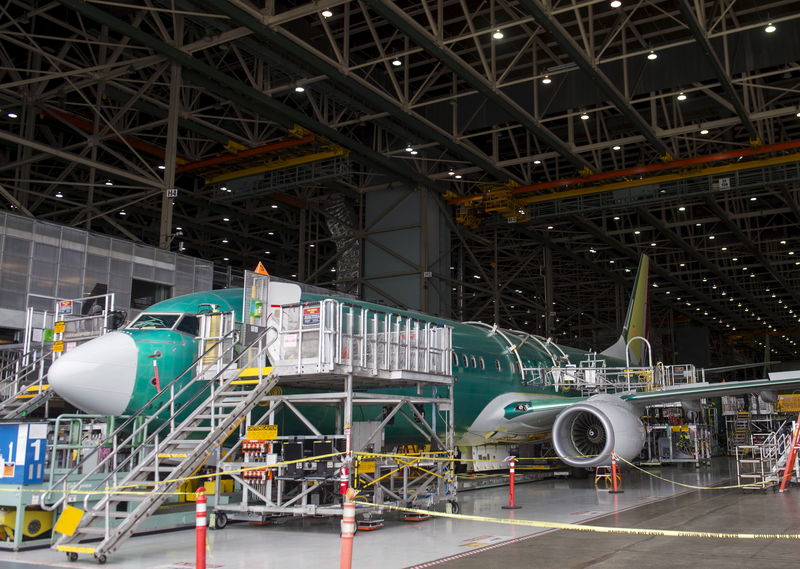By Allison Lampert and David Shepardson
-Boeing said on Sunday it had reached a tentative agreement with a union representing more than 32,000 workers in the U.S. Pacific Northwest, in a deal that could help avert a possible crippling strike as early as Sept. 13.
The proposed four-year agreement, which includes a general wage increase of 25%, 12 weeks of paid parental leave, and improved job security, would need to be approved on Thursday by Boeing (NYSE:) factory workers near Seattle and Portland represented by the International Association of Machinists and Aerospace Workers (IAM).
An accepted deal would secure labor peace for Boeing at a time when the planemaker is burning cash and trying to raise production of its strongest-selling 737 MAX to a target rate of 38 aircraft a month by the year’s end.
Boeing is wrestling with a quality crisis and faces scrutiny from regulators and customers, after a January incident when a door plug on a near-new MAX blew off an Alaska Air (NYSE:) jetliner while in mid-air.
Although the union had asked for a 40% raise in their first full negotiation with Boeing in 16 years, it made other gains, like obtaining a seat at the table regarding the safety and quality of the production system.
“Although there was no way to achieve success on every single item, we can honestly say that this proposal is the best contract we’ve negotiated in our history,” the IAM union local representing the Boeing workers said in a statement.
It also secured a key commitment from the planemaker to produce its next commercial airplane program in the U.S. Pacific Northwest, if launched during the life of the agreement. It’s not clear when Boeing would launch its next aircraft.
The talks had been watched by members of U.S. President Joe Biden’s administration, with labor secretary Julie Su last week urging the sides in an interview with Reuters to get a “fair contract”.
Su had spoken with both new Boeing CEO Kelly Ortberg, a source familiar with the matter said, and union local head Jon Holden.
The Boeing workers, who produce Boeing’s widebody 777 and 767, in addition to the MAX, had voted in favor of a strike mandate in July.


